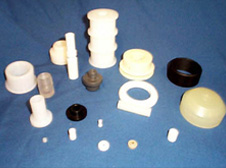Why Choosing the Right Thermoplastic Material is Important for an Application
Thermoplastic components have become essential products that provide solutions in various applications. The success of a thermoplastic component in an application depends entirely on the material chosen for the thermoforming process.
Importance of Choosing Right Thermoplastic Materials
There are numerous types of plastic materials. Each material has its own characteristics – strength weaknesses, high or low tolerances, durability, etc. Depending on the application requirements, the right type of plastic material needs to be chosen so that the manufactured component will provide necessary benefits to an application.
Factors to Consider when Choosing Thermoplastic Materials
There are a certain number of factors that need to be considered when choosing a plastic material for an application.
- Chemical resistance
- Thermal conductivity
- Flammability
- Durability
- Heat modification
- Rigidity
- Thermal expansion
- Tensile and impact strength
When these various characteristics of a plastic material are understood, it becomes easier to choose the right material for an application.
Thermoplastic Traits and Applications
The easiest method to understand the aforementioned attributes is to look a few plastic materials and their various application components. A few material examples are given below.
- Polypropylene: One of the most commonly used materials, polypropylene is known for being light in weight, tough, and showcasing good resistance to chemicals. These properties make it an appropriate choice for applications like laboratory and medical equipment, electric cables, and hinged plastic containers for medical research.
- Polyimide: This is perhaps the best plastic material for plastic molding purposes. It is known for its toughness, is durable in terms of wear and tear, and provides good resistance to chemicals. Polyimide is a popular material when it comes to manufacturing screws, bearings, hinges, and casings for industrial tools.
- Acrylic: Also known as polymethyl methacrylate, acrylic is the perfect material choice for custom manifolds. This is a rigid and durable material; it can be chemically bonded to create a large, strong plastic component. It can be polished to enhance the component’s aesthetic appeal, and also provides good electric insulation. Acrylic is a suitable material for sign posts, displays, and small casings for automobile headlights.
The right thermoplastic material can help create strong and durable components for a variety of applications.

